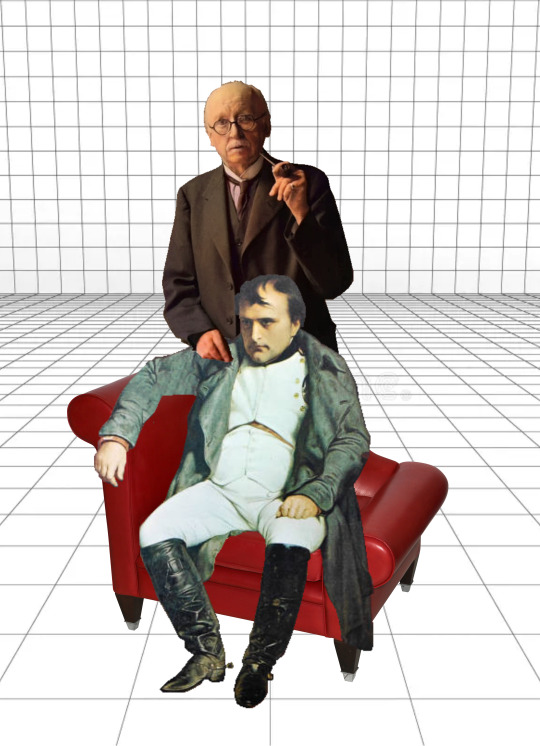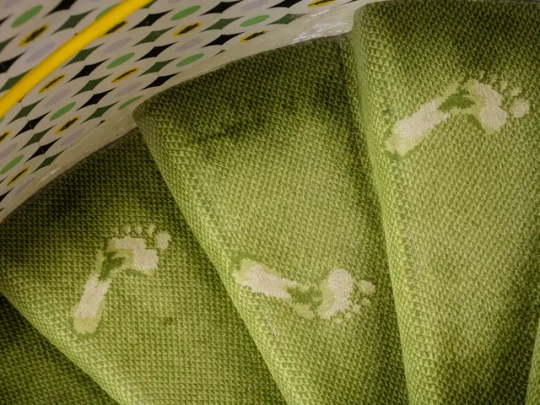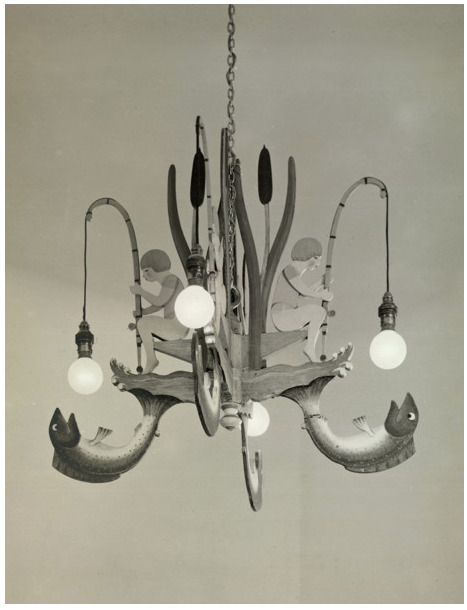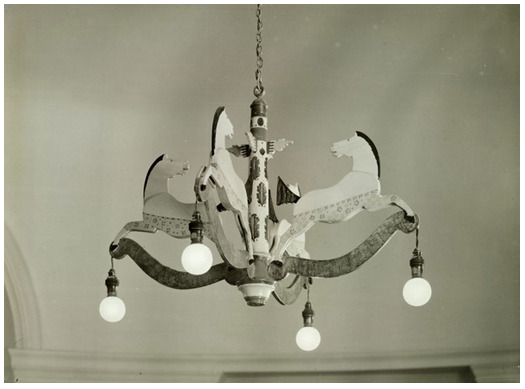#Lutyens
Explore tagged Tumblr posts
Text

Social housing Page Street, Edwin Lutyens, 1928-30, London, UK
2/2024
131 notes
·
View notes
Text



2 notes
·
View notes
Text
This World War One memorial in Lower Swell, Gloucestershire, designed by Lutyens, features a flaming urn on a pedestal. Unveiled in 1921, it honours nine WWI and two WWII soldiers. Read more here:
#Abbotswood#Cotswold#Cotswolds#First world War#Gloucestershire#Inscription#Lutyens#memorial#Second World War#urn
0 notes
Text
Arvind Kejriwal to vacate CM’s residence today, move to new address in Lutyens’ Delhi

Days after his resignation, former Chief Minister Arvind Kejriwal will move on Friday from his 6 Flagstaff Road residence in North Delhi’s Civil Lines area where he had lived since 2015 after becoming the CM of Delhi.
The Aam Aadmi Party (AAP’s) National Convener will now move with his family, including his aged parents, to a bungalow near the party’s headquarters.
Source: bhaskarlive.in
0 notes
Text

Legacy and Reflection: The Cenotaph, the Napoleon Chair, and the Intersection of History and Design
Sir Edwin Lutyens' Cenotaph stands as a poignant symbol of remembrance and sacrifice, honouring the fallen of the World Wars and subsequent conflicts. Its design, simple yet powerful, has indeed become a model for cenotaphs worldwide, encapsulating the solemnity and reverence owed to those who gave their lives in service.
The juxtaposition of the Cenotaph with the Napoleon chair is intriguing, highlighting both the architectural legacy and the complexities of history. Lutyens' design prowess extended beyond memorials to include furniture, with the Napoleon chair standing out as a timeless classic known for its comfort and elegance.
In view of Napoleon Bonaparte and the association with despotism offers a thought-provoking parallel. Indeed, historical figures like Napoleon remind us of the duality inherent in leadership – the capacity for greatness alongside the potential for tyranny. Lutyens' willingness to seat an emperor, even one as controversial as Napoleon, underscores the architect's pragmatic approach and his recognition of the multifaceted nature of history.
Architecture, like any art form, reflects the ethos of its time and the aspirations of its creators. The works of architects like Ledoux and Boullee, responding to the political climate of their era, offer valuable insights into the intersection of power, ideology, and design.
In contemplating these connections, we are reminded of the importance of understanding history in all its complexity, recognizing both the achievements and the shortcomings of past leaders and their legacies. And through monuments like the Cenotaph and the enduring appeal of designs like the Napoleon chair, we find avenues for reflection, commemoration, and perhaps even reconciliation with the past.
#Remembrance#Architecture#History#Design#Legacy#Cenotaph#NapoleonChair#Lutyens#WarMemorial#Reflection#Sacrifice#berlin#area#london#acme#chicago#puzzle#edwin lutyens#massimoscolari#oma
0 notes
Text
Farmhouse Living Room in Dorset

Example of a small farmhouse enclosed light wood floor and wainscoting living room design with a music area, gray walls, no fireplace and no tv
0 notes
Text




“Tilly Losch Footprint” Carpet,’ 1950,
Monkton House, South Downs, West Sussex, United Kingdom,
The Surrealist British poet Edward James was so in love with his ballerina wife, Tilly Losch, that when he saw a trail of her wet footprints up the stairs after her bath, he had them woven into the carpet. He also created a stairwell lined in a carpet woven with his dog’s paw-prints.
#art#design#stairwell#stairway#architecture#staircase#stairs#interiors#staircases#spiral staircase#surreal#tilly losch#footprint#carpet#monkton house#south downs#west sussex#united kingdom#edward james#poetry#paw-print#edwin lutyens#fantasy#style#history
68 notes
·
View notes
Text

Carolyn Brady (American, 1937-2005), Jekyll and Lutyens at Hestercombe/Somerset. Watercolor on paper, 74 × 51 1/2 in.
217 notes
·
View notes
Text
Looong rant about chapter 16 Ptolemy's Gate and how being passive can add to the cycle of ab*se.
oof so I just read when Nat goes to see Ms Lutyens and I can't help but be absolutely furious at her??
I know that's maybe a little bit unfair given she's frightened of him as a magician and is obviously angry when she finds out the department he's responsible for, but honestly it kinda brings up the problem with inadvertent bystanders to child ab*se in my mind.
And I'm definitely not blaming her solely for who Nat becomes but it makes me think of all those people in huge child ab*se cases who give interviews to press about all the things they noticed that were wrong but they just...never do anything?
She stood up for him against Lovelace, and when Nat thanked her- "I wanted to say that I know you were trying to save me, and-"
''Yes, and I'm sorry I didn't" Like girl be for real did you really think that alone would undo the years of indoctrination and abuse he's already suffered and prevent years worth of the same in the years to come? And she won't take responsibility - "My job is with children, not the adults they become" and again while it seems harsh to blame her for who Nat becomes, it's so much easier to pass the blame to people who are more directly responsible rather than acknowledging you also play a part.
I think it hurts so much more because it's her specifically- Nat goes to her in sheer desperation, it almost seems like a goodbye- he wants to thank her, tries to set her up in a job that will pay well and struggles to communicate he's trying to help. At this point he thinks Bartimaeus has been summoned by another magician and his birth name will be revealed. He's sure he's about to die and if not he'll be stood on trial and lose everything.
He goes to her because she represents the peaceful moments from his childhood when he got away from his master. He's scared and feeling lost and really it's call for help; but he doesn't ask for anything he just wants to make her feel proud of him- he's looking for that validation that he's been chasing since childhood.
And that shows he still does have that little bit of childhood innocence in him; he thinks she will be proud, thinks she'll see him as the same little boy in the garden gazing up at his teacher in adoration. He can't quite grasp why she's separated the man stood before her from that little boy. Because in that moment the child inside Nathaniel is seeking comfort AND THAT'S WHY it makes me so angry. She's completely given up on him when he's at his lowest ebb, because she doesn't want to be associated with the magician he's become. As if it isn't a massive step in the right direction that he saught her out in the first place- what other magican would bother? I wonder if that's why she reacted so strongly to seeing him again? Before that moment she could go about her life wondering if /pretending her attempt to protect him was enough, and now she realises it wasn't, of course it wasn't, and the image she had of Nathaniel's childhood innocence is completely ruined in her mind.
Or was her contempt for him even grater than Nat realised? She was naturally disgusted by the rhetoric he'd started to repeat from a young age, and gently tried to correct him although she was clearly angry- was she just resigned to the fact that there is little else she could do to change his future? I always thought- couldn't she have looked for him? The Underwood house fire was in the papers and they mentioned the apprentice was being searched for. Did she ever worry about him? Surely something must have been in the papers since- an announcement of new ministers, ANYTHING! Look at how much research Kitty did to find out about Bartimaeus and Ptolemy. I just don't think Rosanna Lutyens cared enough, realistically Nathaniel wasn't hard to find- but he was no longer her responsibility so she could turn a blind eye.
And sadly it's not just her- I know everyone loves Martha Underwood including Nat; but I think her submissiveness to her husband has a negative effect on Nathaniel as well. In AOS when Nat is locked in his room for ages after setting the mites loose, and is forbidden to have any contact with anyone and she won't talk with him. I know she's been told by Mr. Underwood she can't, but it still boils my blood. She's an adult and going along with ignoring Nathaniel because her husband told her to...I can't even begin to imagine the psychological damage that would do to a 10 year old child. (It could be argued she's frightened of the consequences if her husband finds out she's disobeyed him which is fair, he could always be watching through magic- but this is Arthur Underwood we're talking about. He's lazy, oblivious and weak I doubt he'd expend all that energy each day to check up on her.)
And It's even more painful that Nathaniel is often described as fiercely loyal to her and I think to Ms Lutyens as well- he doesn't expect to be treated well by Arthur Underwood but he loved Mrs Underwood and Ms Lutyens so much he started to view them through a rose-coloured lense. He never feels betrayed by either of them, even though they absolutely let him down, because the pedestal he's put them on is too high AND THAT ABSOLUTELY DESTROYS ME.
Would things with Nathaniel have been any different if Mrs Underwood hadn't died? I don't really think so. Do you think she'd see Nathaniel's temper at 14 years old and be reminded of Arthur Underwood? He was awful, absolutely awful to Nat and to her; but he was under so much stress in an underfunded departement, where pressure was being put on him by superiors to accomplish far more than they knew him to be capable of, and he took it out on the easiest target. Nathaniel ends up in exactly the same place and he starts to take it out on the only person around him- Bartimaeus. Would he snap at Mrs Underwood all the time if she were still there? Because he's learnt that behaviour from his father figure, and subconsciously learnt from his mother figure that she'll put up with it. He learnt from the woman he loved so deeply, that if you don't resist, people will walk all over you. So you have to maintain control even if it ends up hurting people you care about because no one will step in to stop the suffering no matter how much you love them, no matter how much you want them too.
It's easy to blame Arthur Underwood and Simon Lovelace and the magicians that actively hurt Nathaniel but I just feel like it's a bit disingenuous not to acknowledge the role of those doing passive harm. It's really mean to say it but even Bartimaeus plays a role- he knows Nat is clinging on to him because he can't 'bring himself to break this last connection' (to his childhood) but instead of bringing it up properly he 'taunts' Nathaniel- a boy who has been taunted for his weakness by his master for years. And even in AOS when Nathaniel tells Bartimaeus he was beaten for the mites incident Bart just kinda shrugs it off. Like I get it, why should Bartimaeus do anything, he's suffered way worse due to the system so he doesn't owe Nat anything right? But from Nat's point of view this is the first and only time he's mentioned to anyone what has happened to him and nothing changes. It's like another lesson learnt: telling someone about it doesn't help. Another nail in the coffin.
And I like all these characters, I feel bad for them. They're all victims of the system, I think the chapter with Ms Lutyens is just the straw that broke the camel's back for me. All of those little opportunities that are insignificant to the narrative over all; the commoners have it worse, Nathaniel is in a privileged position in society, exerting control over others. He's very morally grey, crossing over into objectively bad person territory but I love him with my whole heart and all of those insignificant moments would have been massive to him whether he was conscious of it or not.
And it goes all the way back to the beginning with Nat's parents giving him up to the magicians at 5 years old. I can't get the image of that little boy sat crying all alone in the government building. And he's not going somewhere safer, or somewhere he'll be happier and more loved. Giving your child over to a total stranger, oh he'll be totally fine won't he? He'll grow up to be a magician and far richer than you'll ever be, he'll be happy and comfortable and be grateful he got to grow up in luxury. There's no way a stranger you've never met, who the majority of society is terrified of would ever hurt a vulnerable little kid right? And if they do? Well you aren't responsible anymore, how could you know? What could you possibly do against the magician taking care of him?
Every little thing is another grain of sand tipping the scale. Did anyone else have to analyse An Inspector Calls in school? It feels like that to me- those BIG moments and all the little moments in between that add onto the pile.
And it goes on to cause problems in wider society too- ab*se is so normalised to the magicians, they casually ask Underwood if he hits Nathaniel like it's nothing. Because to them it is nothing, they've all grown up in the same circumstances and are repeating what they've learnt as children. I can't help but feel a little sorry for them all, especially when they aren't looked at through the black and white lense of 'argh these people are the evil arseholes look at how they treat everyone around them, screw these guys.' When we see those little glimpses of humanity like Simon's anxiety with the amulet; looking to his master and father figure Schyler for reassurance, and what's sad is that Nat is "reminded...of his own master's cold impatience" It's clear Simon looks up to his master, wants to make him proud and loves him. But it seems like Schyler has just trained Simon up so he can get power through him later on. I love the little hints of similarities between Simon and Nathaniel; the anxious mannerisms like fiddling with his hair that Nathaniel starts to develop, the way their master's talk to them. Even though they're actively working against each other in AOS and Simon is placed firmly in the baddies category and Nat in the goodies category at this point in the series; these things always hinted to me they had similar childhoods, how was Simon treated? When he had the imp beat Nat into unconsciousness, was it because he'd had the same punishment used against him? Did he know the magicians in the room would do nothing to stop him because no one stopped it from happening to him? Did he ever have a teacher stand up for him only for it to change nothing in the end because all the negative influences were so much stronger? Is the reason he loves Schyler like a dad because he's almost developed Stockholm syndrome? It looks like love because he's never known anything else.
And Arthur Underwood- who doesn't think his upbringing, and being taken away from his family ever did him any harm- doesn't realise the harm done is that he doesn't even know another way of raising Nathaniel, because he was never shown another way. His childhood may also have been filled with people who hurt him and the people that didn't do enough to intervene.
There are so many psychology studies that show children copy everything they see the adults in their life doing. Nathaniel copies the magicians behaviour towards spirits and on a subconscious level I think he copies all the submissive people in his life. How many times does he end up upset and frustrated with the fact he seems to be going nowhere and how many times does he just hope things will be different rather than taking postive action.
I dislike the actions the magicians end up taking but I also find them fascinating to analyse. I tend to prefer villains in media because they're usually slightly more complex individuals and I love to think about how they ended up that way. They can all be seen as victims of their circumstances in a way, despite all the power and privilege they have had terrible and traumatic childhoods, and if the commoners had no valuable worldy possessions at least they had a sense of togetherness; of love and understanding and selflessness. I wonder if the magicians hated them at least partly because of that. Because out in the sea of faces of the commoners talking about nothing important, doing nothing great and noble- could be the parents that abandoned them. And when your life is on the line daily because of working with spirits, and your colleagues want to stab you in the back, sometimes not being responsible for anything important looks good. But you can't leave your life as a magician, it would be too difficult; you have nowhere to go, no real friends, no one who really loves you. So it's better to stay and be a submissive bystander in your own life because it's so much easier.
Doing nothing is doing something- being passive can be just as harmful.
#Oh boy if I was in Nat's life I'd've packed him into a box and shipped him off to therapy long ago#Listen I'm not a magician apologist per se....#But I do find playing devil's advocate for well -written baddies fun#And I am Nathaniells defence lawyer#I will not hear a word said against him#Just stressing that I do in fact like Mrs Underwood and Ms Lutyens I just wish they were a little stronger in sticking up for Nat#and I do hate mr Underwood#Simon lovelace tho.... I quite like him he can have a little space in the therapy box#I have a softspot for him because of the mannerisms that compare him to Nat okay???#Is it obvious I studied psychology at school 😅#Or that I am a huge Nat kinnie😅😅#Please don't hate me for this take#If anyone takes anything from this please let it be children copy everything they see you do including when you do nothing#This is quite tangential#bartseq#bartimaeus sequence#bartimaeus trilogy#bartimaeus#nathaniel underwood#liveblogging
109 notes
·
View notes
Text

Page Street Housing, Sir Edwin Lutyens, Westminster 1928 ..
27 notes
·
View notes
Text
thinking about Ms Lutyens like what other people did she work for how many magicians apprentices did she tutor how many of them did she have to watch grow up into terrible people how many of them was she deeply patient and kind with because she knew she was the only person to be kind and patient with in their lives like. how much did she see. how much of the system did she witness she probably knew exactly how bad it was. she was ready to hit a man over Nathaniel how many more times was she in that position.
#bartimaeus#the bartimaeus sequence#the bartimaeus trilogy#miss lutyens#Ms lutyens#Ms. lutyens#how much did she believe in the magicians then#how much did she believe in the government or more so kept her head down#just trying to help the kids she could before they turned into horrible people
65 notes
·
View notes
Photo



Chandeliers designed by Edwin Lutyens for the nursery of the Viceroy’s house in New Delhi, 1931
Collection of Royal Institute of British Architects
198 notes
·
View notes
Text
i’m just!!! you are nathaniel. you are twelve years old. six years ago your parents sold you to the government to be trained into one more piece of the terrible machine of british imperialism. there are exactly two adults in your life who have ever shown you kindness. one of them is your master’s wife, who is the only person alive who knows your birth name. one of them is a commoner art teacher who you are immediately infatuated with, and who is the only person who tries to stop you from being viciously punished for a childish outburst by another magician of higher standing than your master. she is fired from her position as your teacher after this.
you see her again 6 years later. you are a well-respected member of parliament, popular, on the rise. one of the youngest ever in your station.
and your old teacher doesn’t want to talk to you.
#miss lutyens my BELOVED#like. god. you are an art teacher to these children#that you know will grow up to be put in positions of power#in the system that makes your life terrible#you watch these children grow up and become unrecognizable#you don’t think about it. you don’t connect the ruling class to the kids you teach.#there’s nothing else you can do.
18 notes
·
View notes
Text
This First World War memorial in Miserden, Gloucestershire, commissioned by local landowner Noel Wills, features a design by Sir Edwin Lutyens. Constructed of limestone, it stands seven metres tall with inscriptions honouring fallen soldiers from both World Wars. Read more here:
0 notes
Text
I kinda want to see a conversation between Kitty + Bart and Ms. Lutyens. I just think it would be interesting to see them bonding over their complicated feelings about Nathaniel
15 notes
·
View notes
Text

Architectural Legacies: Lutyens, Hollein, and Colonial Symbolism
The portrait of Sir Edwin Landseer Lutyens captivates not only his visage but also his architectural ingenuity, symbolized by the incorporation of a model showcasing the distinctive 'chattri' roof feature. Crafted in his New Delhi office, this bust stood proudly in Lutyens' London workspace, serving as a testament to his visionary designs. Sir Edwin Landseer Lutyens, an illustrious British architect, remains celebrated for his adept fusion of traditional styles with the demands of his era, particularly showcased in his monumental contributions to the creation of New Delhi, dubbed "Lutyens’ Delhi."
Renowned as perhaps the foremost British architect of his time, Lutyens left an indelible mark on the Indian landscape. Collaborating with Sir Herbert Baker, he shaped the architectural identity of New Delhi, crafting iconic structures like the India Gate and the majestic Viceroy’s House, now known as Rashtrapati Bhavan. His knighthood as a Knight Commander of the Order of the Indian Empire in 1930 underscored his pivotal role in India’s architectural heritage.
Notably, a bust of Lutyens remains a singular Western tribute within the former Viceroy’s House in New Delhi, a poignant reminder of his enduring influence. Yet, while Lutyens’ architectural legacy is undeniably monumental, it's essential to acknowledge his views on the peoples of the Indian subcontinent, reflective of the biases prevailing in his era.
The narrative of Lutyens’ architectural prowess intersects intriguingly with the Vienna travel agency designed by Hollein, where clever architectural references to luminaries like John Nash and Otto Wagner coalesced. This artistic amalgamation, albeit fleeting due to demolition, offered an alternative lens through which to view British colonialism's architectural dimensions. Was the agency’s demise a deliberate erasure of symbolic messaging, prompting contemplation on the nuanced narratives of colonial architecture?
Indeed, Lutyens’ classicism, as evidenced by his iconic 'hat' from Delhi, resonated beyond geographical boundaries, leaving an indelible imprint on the architectural zeitgeist. The Vienna episode underscores the intricate interplay between architectural heritage, cultural symbolism, and geopolitical narratives, prompting reflection on the multifaceted legacies of colonialism.
#ArchitecturalLegacies#Lutyens#Hollein#Colonialism#ArchitecturalHeritage#CulturalSymbolism#NewDelhi#Vienna#BritishArchitecture#HistoricalNarratives#architecture#berlin#area#london#acme#chicago#puzzle#edwin lutyens#massimoscolari#oma
0 notes